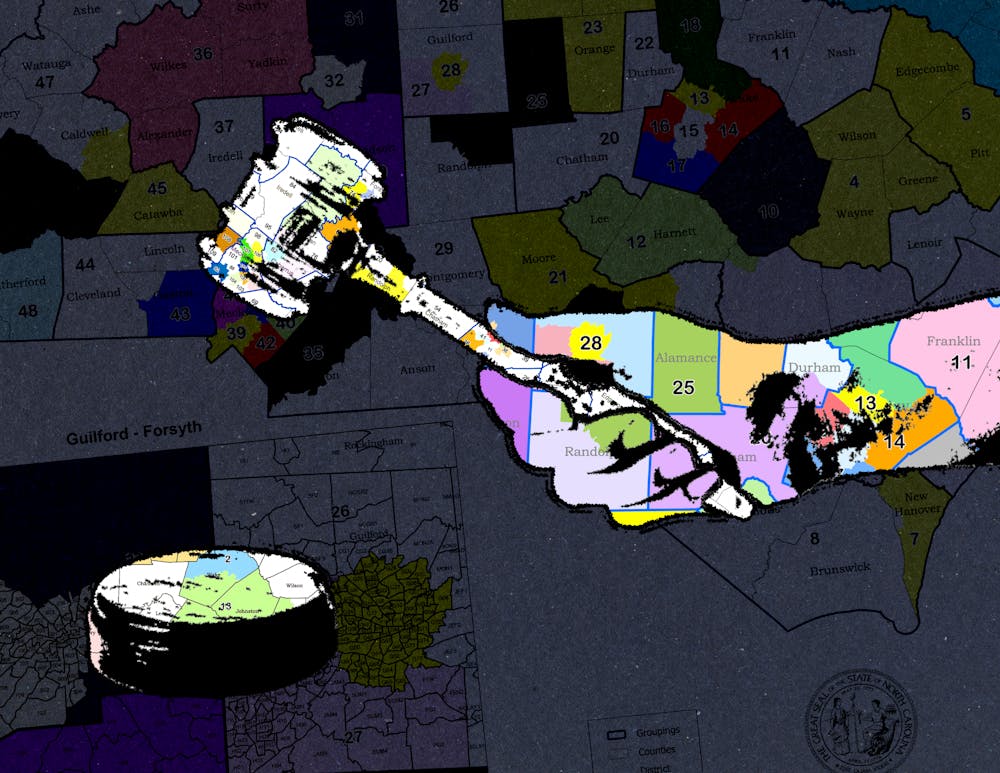Last Wednesday, the N.C. Supreme Court certified new political maps in the state of North Carolina, establishing a new congressional map drawn by a panel of nonpartisan advisers while certifying the N.C. House and Senate maps proposed by lawmakers in the state.
This follows a Feb. 4 ruling by the N.C. Supreme Court, in which it rules that the Republican-drawn maps were unconstitutional.
The new congressional, House and Senate maps will take effect for the 2022 primary elections on May 17, according to Rachel Raper, director of the Orange County Board of Elections.
Under the new setup, Orange County will remain in District 4 of the congressional map. It will also remain in the 23rd district in the N.C. Senate and will retain its current boundaries in the N.C. House, including the 50th and 56th districts.
A contentious congressional map
After the rejection of their congressional map by the state courts, North Carolina Republicans are looking to the U.S. Supreme Court for support. On Friday, several members of the GOP submitted an application to consider overturning the new congressional map.
“The people of North Carolina will be harmed if instead, a handful of judges are permitted to outsource the creation of a congressional map to a hastily selected group of Special Masters and their assistants, working behind closed doors and in communication with Plaintiffs’ experts, and with less than a week to do their work,” they write in the application.
N.C. House Speaker Tim Moore, R-Cleveland, said in a statement that the Court’s decision to allow the congressional map to be drawn by individuals outside of the legislature is unconstitutional.
“Let me clear: This court has effectively taken a hammer to our state constitution and the rule of law, and I will appeal this ruling with respect to the congressional map immediately on behalf of the voters," he said in a statement on Feb. 23.




